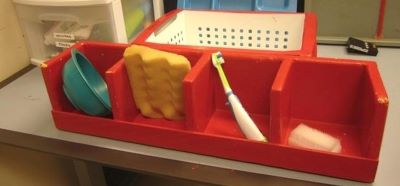Calendar Systems
Time-related concepts (e.g., past, present, future, wait, next), and words to represent them, help us make sense of the world.

Calendar systems are timepieces that help children and youth with deafblindness learn time concepts and vocabulary, be aware of what is going to happen, make decisions about their own schedules, and have conversations in which they can look forward to upcoming events and reminisce about the past.
Calendars range from very simple two-container systems that help a child understand what will happen next, to daily/weekly schedules, to monthly and annual versions that are closer to a traditional format. Each is highly individualized so that it makes sense to a particular student.
See also:
Introductory Resources
Learn More
Calendar Systems (OHOA Module)
The Calendar (Texas Deafblind Project)
Offline Resource
Book: Blaha, R. (2001). Calendars for Students with Multiple Impairments Including Deafblindness. Texas School for the Blind and Visually Impaired.
Children who are deafblind may struggle to understand the organization of their lives. They often cannot anticipate when changes are going to occur, and have no way to communicate about them. Calendar systems can help. They are designed to communicate activities and events in a systematic way. (Tellefson, 2007)
References
Blaha, R., Borg, J., Clyne, M., Hartman, V., Martin, B. (2015, September). Calendars. In National Center on Deaf-Blindness, Open Hands, Open Access: Deaf-Blind Intervener Learning Modules. Monmouth, OR: National Center on Deaf-Blindness, The Research Institute at Western Oregon University.
Tellefson, M. (2007). Calendar systems: A developmental approach for young children with sensory impairments.
KEEP EXPLORING